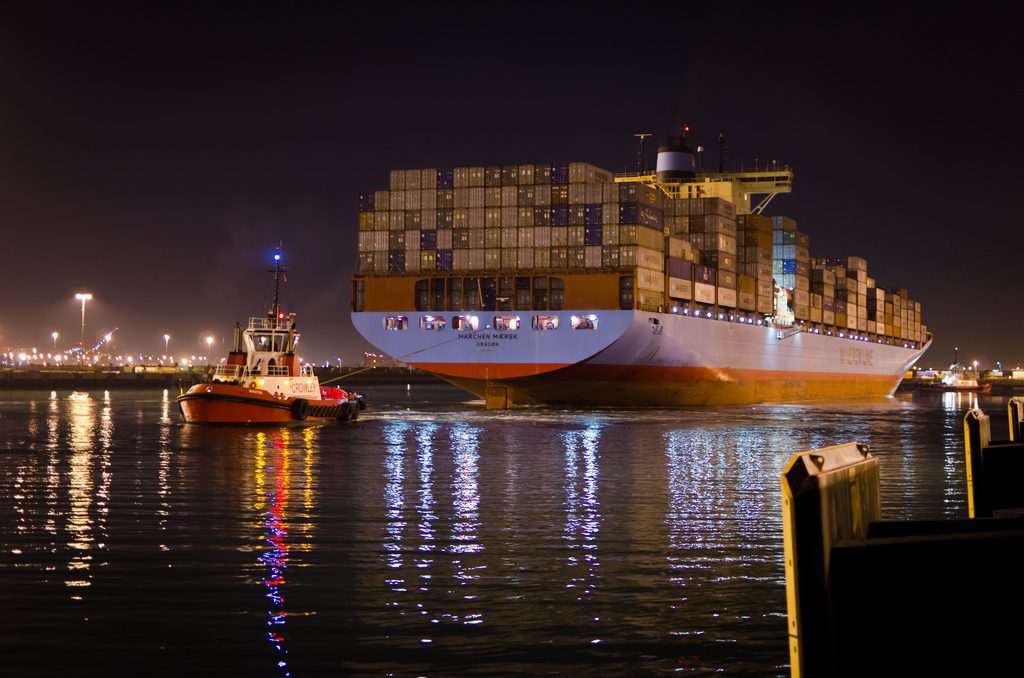 By Jonathan Saul and Andreas Kröner
By Jonathan Saul and Andreas Kröner
LONDON/FRANKFURT, Sept 15 (Reuters) – German banks are struggling to recoup tens of billions of dollars of loans as a global shipping industry slump hits them hard.
The lenders – among the biggest backers of shipowners over the past 20 years – are behind up to a quarter of the world’s $400 billion of outstanding shipping loans, three shipping financiers told Reuters.
This would make them collectively more exposed than banks from any other single country in terms of outstanding debt to the sector.
These institutions are now grappling with a near decade-long slump of parts of the shipping sector since the 2008 financial crisis that is also hurting European peers, such as Britain’s Royal Bank of Scotland.
“German banks account for close to $100 billion of shipping debt out of a world total of around $400 billion,” said Dagfinn Lunde, who spent more than a decade as head of shipping at Germany’s DVB Bank until the end of 2013.
The same estimates of German bank exposure and total sector debt were made by two other shipping finance executives, who declined to be named, citing the confidentiality of their business dealings.
Lunde, now a board member of Norway’s Maritime and Merchant Bank, said German lenders had been “throwing money” at the sector when shipping business was brisk. “When the values tumbled, they were left with massive exposure to toxic debt.”
As worsening conditions in the shipping sector leave some shipowners unable to meet payments, it is unlikely that many banks will see a full return on their investments. This could leave them having to sell down their debt at a discount to distressed buyers or to write off some of their loans.
The shipping difficulties come at a time when European banks are already bogged down by a sluggish economy and face tough capital demands from regulators which are eroding profitability.
SHIPPING ‘IMPLODING’
Segments of the shipping industry are suffering their deepest downturn ever as international trade slows. Around 90 percent of world trade is transported by sea.
South Korean container line Hanjin, which filed for receivership on Aug. 31, is the latest casualty in a crisis exacerbated by a glut of ships, many of which were built before the financial crisis when the global economy was healthier.
“It seems like the shipbuilding and ship finance sectors are … imploding,” Anthony Gurnee, chief executive of ship operator Ardmore Shipping Corp, told an industry conference in London last week.
His comments echo remarks made by Stefan Ermisch, the chief executive of shipping finance specialist HSH Nordbank, who recently described the shipping sector as “on the floor”.
Before the financial crisis, when a dry bulk ship or oil tanker could earn over $200,000 a day, German banks were among the most prominent financing players. Such vessels now command around $10,000-$15,000 a day.
Banks’ exposure varies widely across German lenders such as Deutsche Bank, Commerzbank and state-backed lender NordLB. Part of the risk stems from exposure to closed investment funds – called KG houses – which bought ships and leased them to big shipping companies.
Commerzbank and Deutsche Bank declined to comment on its shipping finance activities and plans.
“For German shipowners, Hanjin is bad news as for them a large company falls away with which they can charter their ships,” Oliver Faak, global head ship and aircraft finance at NordLB, told Reuters.
He warned the outlook for the oil tanker market was worsening. “Many shipping companies have ordered tankers that are now being delivered. Supply is rising but the demand hasn’t changed.”
OFFLOAD DEBT
Bankers said the scale of the lenders’ potential losses from the loans now depended on how strict the European Central Bank would be in forcing them to tackle the problem.
In June, people familiar with the matter said the ECB had launched a review of banks’ shipping finance, raising concerns among lenders that they may be required to set aside more capital to cover possible losses.
A regulatory source familiar with ECB policy said the review was an initial step. The ECB is currently analysing the data and will likely take further measures afterwards, said the source, adding: “The ECB suspects some European banks use too optimistic models to calculate the value of shipping loans and ships.”
The ECB declined to comment.
In the meantime, banks are trying to offload some debt.
Sources have told Reuters RBS is trying to sell its Greek shipping business, which is valued at around $3 billion, as well as up to $500 million of a separate portfolio of Turkish shipping loans.
NordLB said in August it was selling a $1.5 billion portfolio of shipping loans to KKR Credit, part of private equity firm KKR, and a sovereign wealth fund.
But one of the three shipping financiers said there were few buyers. “The market is awash with distressed debt. Once again the banks will be stuck.”
Nicholas Tsevdos, managing director of Ocean Way Navigation, a London-based shipping investor and asset manager, said the outcome of RBS efforts to sell off its shipping exposure was among the test cases being watched.
“If they fail to get buyers for the full books, it is not a great incentive for others to do the same,” said Tsevdos, whose firm has advised on bank financing deals in recent months.
NordLB said earlier this year it aimed to cut its overall shipping exposure to 12 to 14 billion euros ($16 billion) within the next three years from 19 billion euros at the end of 2015.
NordLB’s Faak said the banks would achieve “reduction targets because they have to reach them”.
“The only question is, at what price?”
($1 = 0.8903 euros) (Editing by John O’Donnell and Pravin Char)
(c) Copyright Thomson Reuters 2016.

 Join The Club
Join The Club











